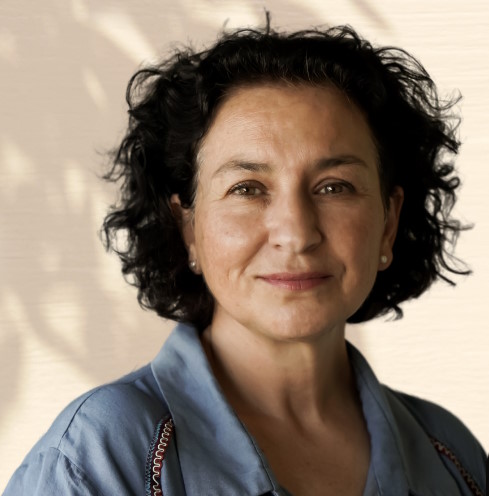Myriam (Elfersi) Grunewald, Ph.D.
Myriam (Elfersi) Grunewald, Ph.D. is a Vascular Biologist, Director of Research at the Hebrew University, and is a Freelance Consultant.
Myriam is also the Head of the Hadassah Medical Organization’s newly established Organoid Center within Hadassah’s Wohl Institute for Translational Medicine. Watch Honey, I Shrunk the Organs. Read Organoid Tech Brings Hadassah Medicine to a New Level.
Myriam was trained as a Vascular Biologist in the laboratory of Professor Eli Keshet. She has recently become interested in studying the aging process through the lens of blood vessel biology. Blood vessels are much more than simple blood conduits providing nutrients to our cells and are intricately implicated in the maintenance of our body’s homeostasis via multiple pathways.
Recent studies have challenged the notion of uniform aging, revealing distinct aging rates and trajectories for various organs. This also might suggest a hierarchical relationship among organs. Considering the intricate relationship of the vasculature with all other organs, Myriam proposes that vascular aging serves as a critical upstream driver contributing to the deterioration of numerous other organs. Read Hadassah Medical Center opens Israel’s first mini organ bank, and Hadassah’s Organoids Personalise Treatment For Cancer Patients.
Myriam presented her work at the Evolving Concepts of Organismal Aging, Biology of Aging Gordon Research Conference.
Her main research interest focuses currently on the role of the vasculature in the maintenance of adult stem cells in the hematopoietic and nervous system and how vascular cells drive organ regeneration following injury. Her recent major contribution to the aging field has placed age-related vascular deterioration at center stage in multi-organ aging and has demonstrated that its undoing confers a comprehensive geroprotection.
This work has opened many research directions, including the interesting possibility that preserving a functional microvasculature could slow down the aging clock of the body. She now focuses on deciphering the underlying mechanisms that induce aging in blood vessels and how they can be targeted to increase human healthspan.
Her findings present compelling evidence that VEGF-based vascular manipulations, which counteracts age-associated microvascular rarefaction, are sufficient enough for geroprotection. Her recent findings indicate that maintaining youthful VEGF levels also delays thymic atrophy, positively impacting the immune system, and reinforcing its role in overall health enhancement.
This innovative approach underscores the potential of vascular-based strategies to extend both lifespan and healthspan. Read Counteracting age-related VEGF signaling insufficiency promotes healthy aging and extends life span and VEGF-Induced Adult Neovascularization: Recruitment, Retention, and Role of Accessory Cells.
Myriam earned her Ph.D. in Biochemistry, Molecular Biology, and Structural Biology in 2003. She trained as a Vascular Biologist in the lab of Professor Eli Keshet with whom she continues to work closely, deciphering how blood vessels are contributing to health and disease.
She did her Postdoctoral Research between 2003 and 2007 at The Hebrew University of Jerusalem where she moved from Structural Biology to Physiology.
She became the Director of Research at the Faculty of Medicine at the Hebrew University in 2007, where she continues her work on Vascular Biology, from vascular-associated diseases to vascular-organ interface.
In 2020, she became the Director of the Hadassah Medical Center bringing to Jerusalem the organoid technology pioneered by Toshiro Sato and setting up a platform based on patient-derived organoids, available for the whole scientific community.
Myriam was Invited Speaker at the New Frontiers In Cardiac And Vascular Biology Symposium, The David Lopatie Conference Centre Weizmann Institute of Science Rehovot, Israel at the International Centre for Genetic Engineering and Biotechnology (ICGEB) in Trieste, Italy, Longevity Nation, Conference Enhancing Research, Development, and Education for Healthy Longevity organized by Vetek Association, and IDIBell Seminars Aging: vascular dysfunction at the driver seat.
Read MicroCT-based imaging of microvasculature within the bone tissue, Diclofenac Inhibits Tumor Growth in a Murine Model of Pancreatic Cancer by Modulation of VEGF Levels and Arginase Activity, and On-site education of VEGF-recruited monocytes improves their performance as angiogenic and arteriogenic accessory cells.
Visit her LinkedIn profile, ResearchGate, Live Forever Club, and Academia page. Follow her on Facebook, AD Scientific Index, and Twitter.
